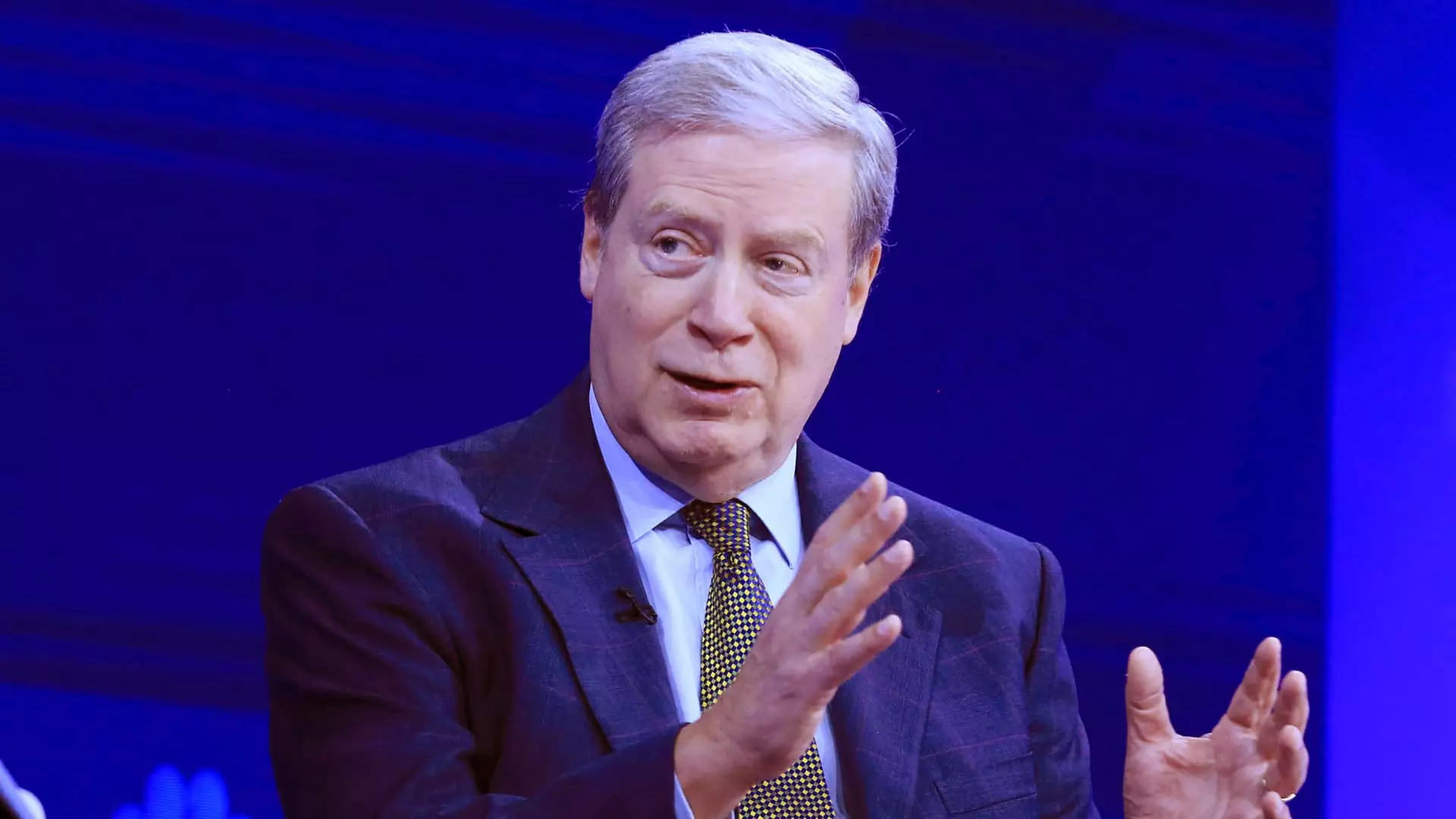Billionaire investor Stanley Druckenmiller has recently made headlines with his assertions regarding the renewed vigor within the markets post-Donald Trump’s re-election. Renowned for his profound insights into the economic climate, Druckenmiller, who heads the Duquesne Family Office, believes that we have transitioned from one of the most business-unfriendly administrations to a season of opportunism and growth. “I’ve been doing this for 49 years, and we’re probably going from the most anti-business administration to the opposite,” he stated, emphasizing the upbeat sentiments among corporate leaders. This observation suggests that the economic environment is shifting towards favorability, providing a fertile ground for speculation and investment.
Druckenmiller’s assertion that CEOs are oscillating between relief and excitement encapsulates the current market mentality. The concept of “animal spirits,” a term that describes the instinctive and emotional decision-making driving economic behavior, is particularly relevant in this scenario. The investor feels that this exuberance could fuel a short-term economic resurgence, potentially invigorating numerous sectors.
While Druckenmiller expresses a bullish outlook on the economy, he cautions against overly optimistic projections for the stock market itself. This juxtaposition reflects the complexity of current economic conditions—with a robust economy potentially leading to rising bond yields. “In terms of the markets, it’s complicated,” he remarked, highlighting the precarious balance between economic growth and interest rate hikes.
His perspective holds weight, especially for investors navigating through elevated bond yields, which can signal a potential slowdown in stock market growth. Druckenmiller’s strategy of maintaining a short position against Treasurys showcases his belief that bond prices will likely decrease, corresponding to increased yield. This tension plays a pivotal role in shaping investment decisions through uncertain economic waters.
November saw the S&P 500 soaring nearly 6% following Trump’s electoral victory, giving rise to a notable 23.3% gain for the index in 2024. The promise of tax cuts and deregulation has been a driving force behind this increase, rejuvenating sectors that thrive under such conditions, particularly banks and energy corporations. Additionally, cryptocurrencies like Bitcoin have reached new heights, signaling a broader risk appetite among investors.
However, Druckenmiller is judicious in his approach—focusing on individual stock investments rather than getting swept up in the broader market dynamics. His interest lies particularly in companies leveraging artificial intelligence to enhance productivity and reduce costs, although he has refrained from revealing specific stock choices after liquidating positions in both Nvidia and Microsoft.
Concerns around Trump’s proposed punitive tariffs evoke a complex discussion about their potential impact on the market rally and inflation rates. Druckenmiller believes that the revenue generated from these tariffs could mitigate the country’s fiscal deficits. In his view, tariffs function as a consumption tax that is primarily borne by foreigners. Cautioning against the risks of retaliatory actions, he noted that as long as tariffs remain relatively moderate—within the 10% threshold—the perceived dangers are outweighed by possible economic benefits.
Rumors suggest that Trump is contemplating a series of gradual tariff adjustments, which may further complicate the economic landscape. As these measures unfold, Druckenmiller’s historical perspective—which includes a legendary $10 billion bet against the British pound in 1992—as well as his extensive experience managing the Quantum Fund for George Soros, lends considerable weight to his insights.
Druckenmiller’s analysis provides a thoughtful framework for understanding the present investment climate shaped by Trump’s re-election. The prevailing optimism among CEOs, paired with the economic duality of growth and potential market headwinds, highlights the need for a nuanced investment strategy. As we enter this new chapter, investors must remain vigilant, assessing both the opportunities and challenges that this evolving landscape presents. The advantage lies not solely in speculation but also in informed, strategic positioning within a multifaceted economic scenario.

